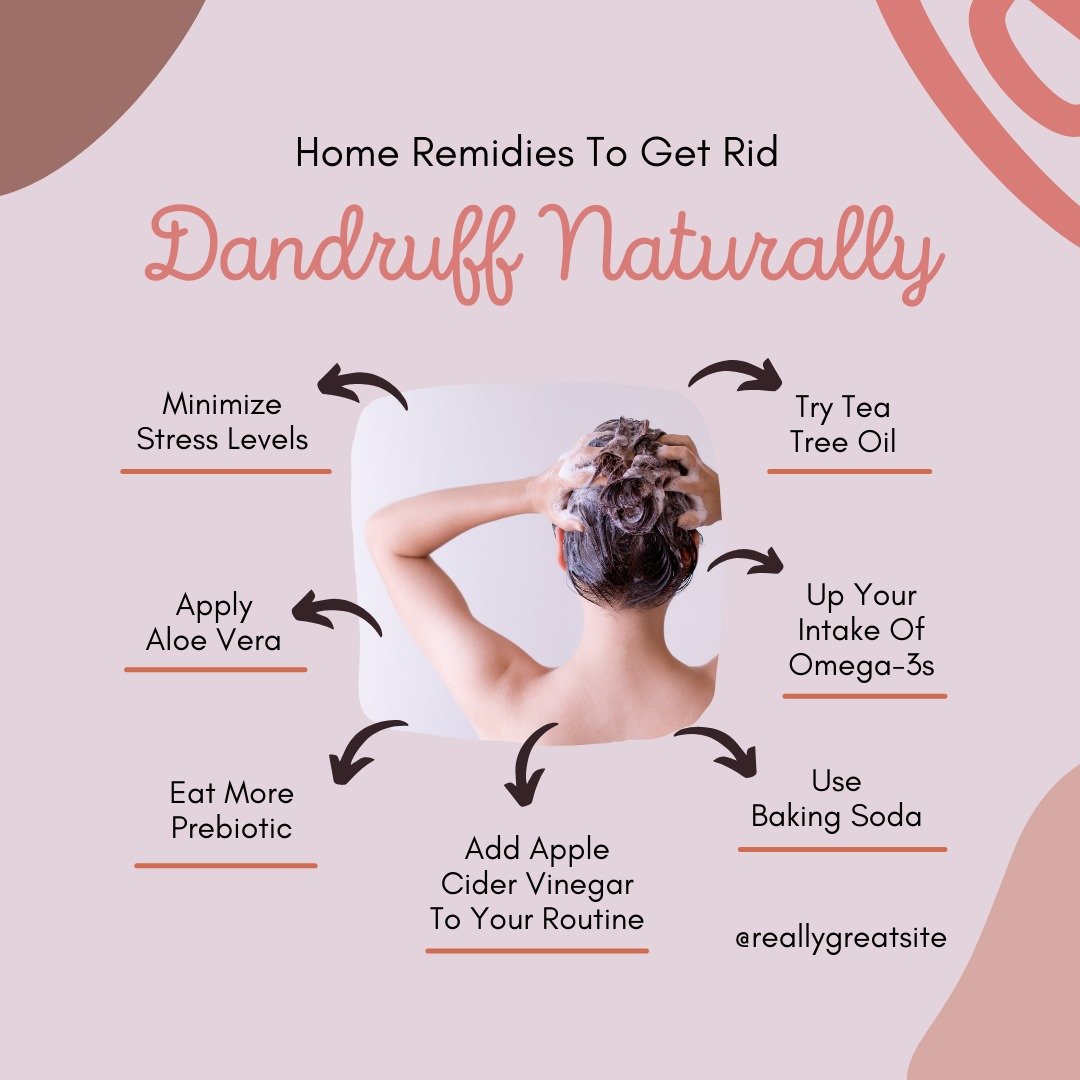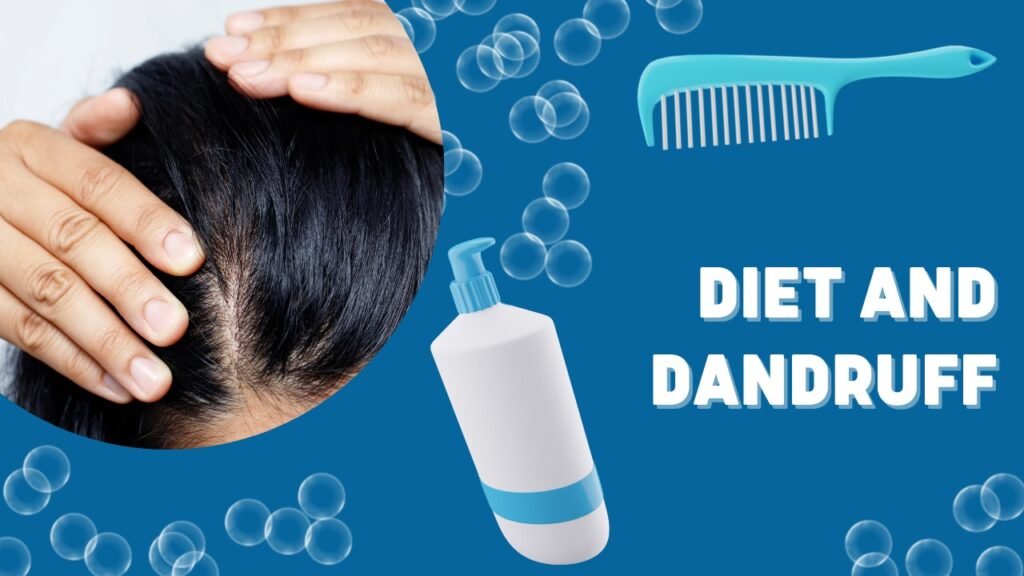Introduction
Dandruff, a common condition characterized by the shedding of dead skin cells from the scalp, is a topic of significant interest. Recent studies have linked its occurrence to genetics, hormonal imbalance, environmental conditions, and, most notably, diet. This comprehensive discussion explores the crucial role of diet in dandruff and provides practical dietary strategies for managing this bothersome condition.
Diet’s Role in Dandruff Formulation
Dietary variables, such as microbial imbalances, malnutrition, and bodily fluid fluctuations, could contribute to dandruff formation. These linkages must be understood to create appropriate solutions to remedy dandruff symptoms.
High Sugar and Processed Foods
Here’s a food for thought: a diet high in sugar or processed foods can increase your chances of dealing with dandruff. These dietary choices upset the balance of microorganisms on your scalp, creating a favorable environment for the Malassezia fungus that causes dandruff to thrive. Moreover, excessive sugar consumption can fuel inflammation, leading to more itching and flake accumulation. So, if you’re battling dandruff, it’s time to cut back on sugary items like fizzy drinks, sweets, and ready-to-eat foods.
Omega-3 Fatty Acids Deficiency
Omega-3 fatty acids found generously in oily fish such as mackerel, tuna, coley, flax seeds, walnuts, etc., best preserve the skin. A lack of these essential fats will demean the function of your skin’s barrier; hence, its desiccation will lead to more scaling off on your head. To fight against dandruff, omega-3-rich diets are good enough to ensure that one’s skin is nourished from deeper parts, minimizing the chances of getting dandruff.
Inadequate Zinc and B Vitamins
One critical aspect of healthy and functioning skin is zinc combined with other B vitamins such as B6, biotin (B7), and B12. When these nutrients are absent, renewing skin cells becomes inhibited, resulting in an imbalance in the body’s water, further causing dandruff. Consequently, individuals are expected to consume lean meat, eggs, vegetables, and whole-grain foods with both minerals.
Lack Of Enough Water
Inadequate scalp hydration compromises the skin’s moisture balance, making it dry and losing its scale consistency once it dehydrates. As a result, caregivers advise everyone to drink at least eight glasses of water each day to stay properly hydrated. Additionally, you can consume fruits or vegetables, which also help hydrate your skin while reducing dryness caused by dandruff.
Practical Dietary Strategies for Managing Dandruff
Besides knowing the factors about diet that influence dandruff, there are practical dietary strategies that could help manage this condition effectively, thus promoting hair growth on the head.
Embracing Balanced Diet
A proper mix should contain fresh fruits, leafy vegetables, lean meats, cereals, and whole wheat bread, among others, to supply your entire body with essential elements needed for its normal growth regarding the scalp. To improve the resilience of their skin against dandruff and other scalp problems, they must choose foods rich in nutrients, for instance, proteins or carbohydrates.

Eating More Omega-3-Rich Foods
Dandruff symptoms can be alleviated through skid-nourishing, nutrient-dense meals like those containing omega-3 fatty acids found in species like salmon, sardines, anchovies, tuna, flax seeds, chia seeds, etc. These foods contain crucial fats that support the functioning of skin barriers, moisturizing them against dryness and thereby reducing risks associated with the development of dandruff.
Reducing Sugar and Processed Foods
Reducing the consumption of sugary and processed foods can significantly relieve dandruff symptoms. Rebalancing the microbial environment of the scalp can bring comfort and ease. At the same time, including whole, unprocessed foods and reducing added sugars in one’s diet can support a healthier scalp and reduce the chances of dandruff recurrence, providing relief and comfort.
How to Maintain Proper Hydration
Your role in maintaining proper hydration is crucial for good skin health, including the scalp. By ensuring optimal hydration levels and reducing the severity of dandruff symptoms through drinking enough water during the day and eating hydrating foods like cucumbers, watermelon, and citrus fruits, you can actively contribute to your scalp health and overall well-being.
In Conclusion
As we conclude, it’s clear that diet plays a pivotal role in developing and managing dandruff. Understanding how diet influences dandruff can empower you to make informed dietary choices, alleviate your symptoms, and promote healing on your scalp. You can effectively combat this condition by adopting a balanced diet with essential nutrients, incorporating omega-3-rich foods, limiting sugar and processed foods, and ensuring proper hydration. So, why not start today? Take the first step towards healthier hair, a flake-free scalp, and an improved sense of well-being by prioritizing your scalp health through dietary interventions.
Read also: Oh Em Gee Blog: Chronicles Of The Unexpected












1 thought on “Understanding the Connection between Diet and Dandruff”